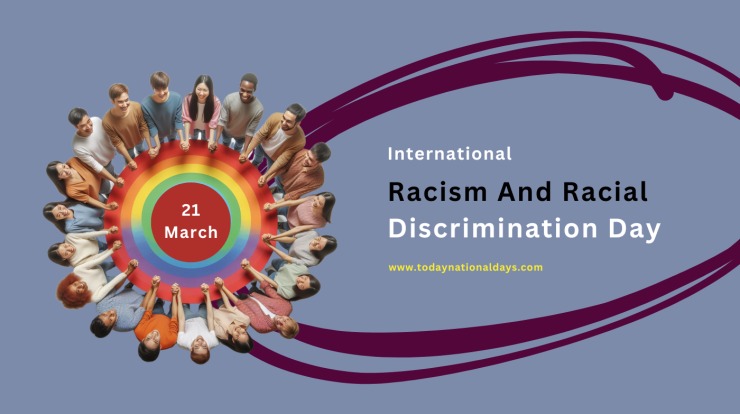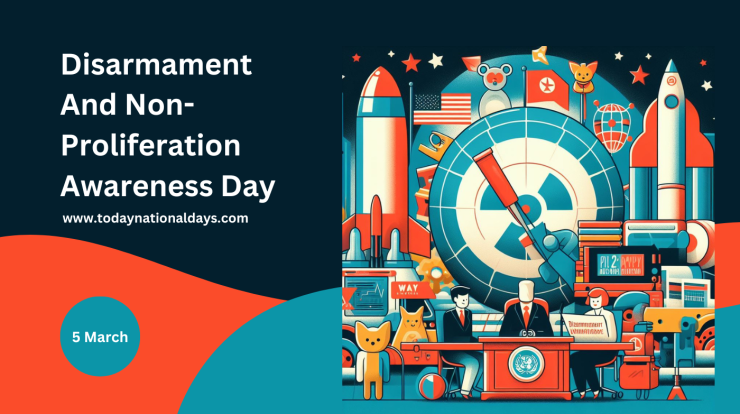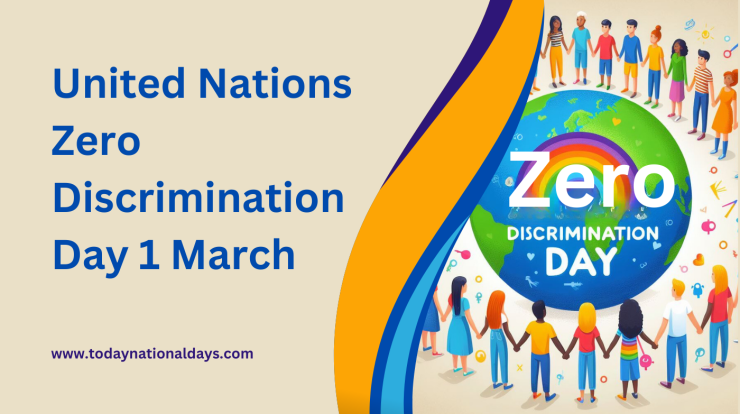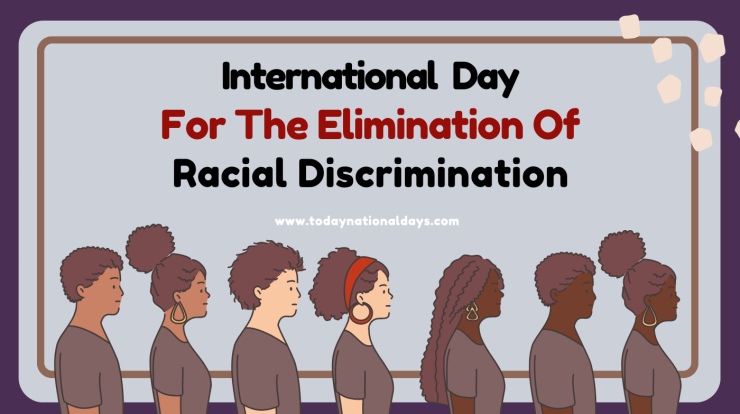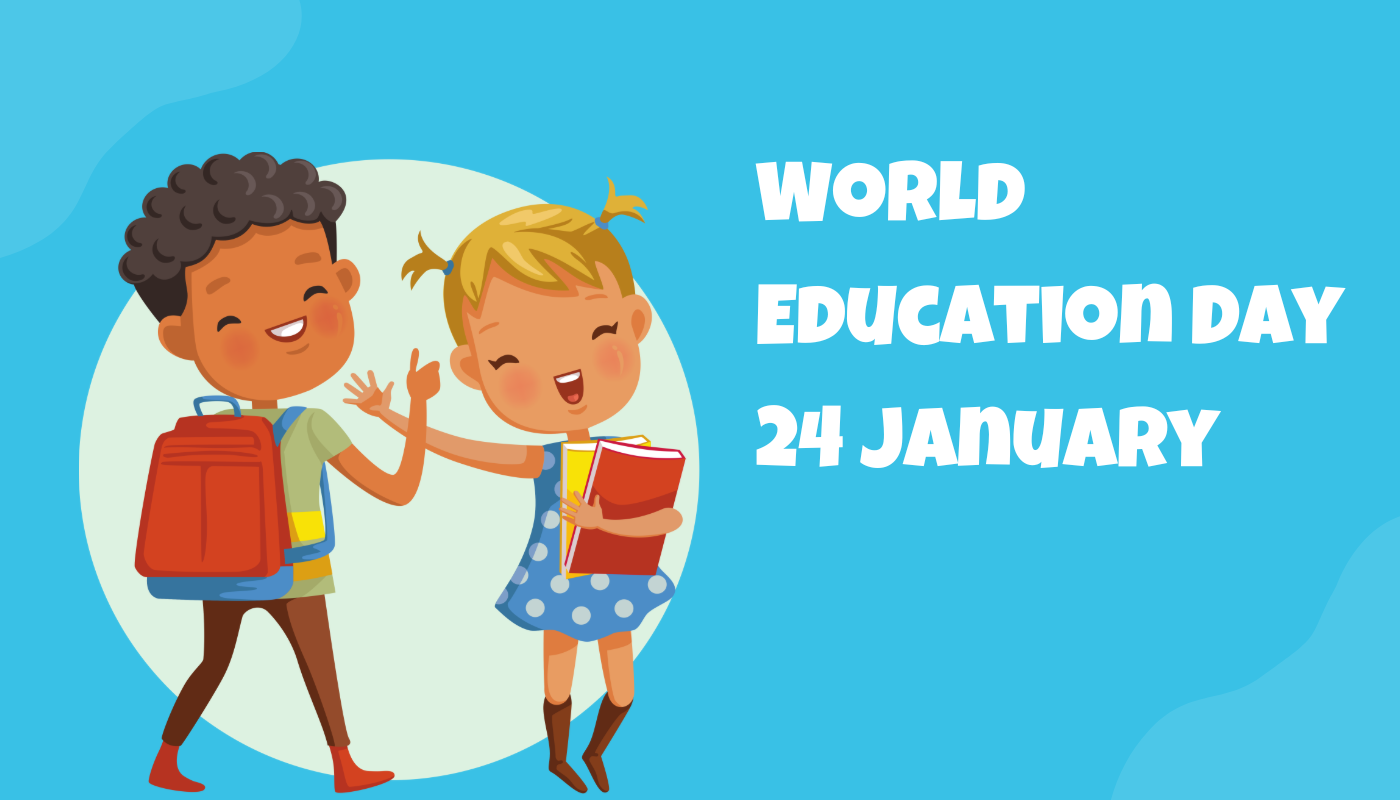
Celebrate International World Education Day 24 January with insights from our latest blog post. Discover how education impacts society, tackles challenges, and ensures fair access. UNESCO marks January 24, 2024, as the International Day of Education, focusing on combating hate speech. This harmful trend, fueled by social media, threatens social cohesion.
Education plays a pivotal role in addressing global conflicts, discrimination, and promoting peace. UNESCO emphasizes education’s role in fostering peace, human rights, and sustainable development. Education shapes our worldview and treatment of others, making it crucial for global harmony.
About The International Day Of Education
Education is a fundamental human right and a vital societal asset that demands collective responsibility.
Recognizing its significance, the United Nations General Assembly designated January 24 as the International Day of Education, celebrating education’s pivotal role in fostering peace and development.
The absence of inclusive, high-quality education and lifelong learning opportunities jeopardizes efforts to achieve gender equality and break the vicious cycle of poverty, leaving countless children, youth, and adults marginalized.
Currently, a staggering 250 million children and youth remain deprived of schooling, while 763 million adults grapple with illiteracy.
Such deprivation constitutes a grave violation of their right to education and is utterly unacceptable. It’s imperative to overhaul our approach to teaching, ensuring equitable access for all.
Why An Education Day
Education is an undeniable human right, a fundamental driver of societal advancement, and a collective responsibility.” UNESCO’s firm position succinctly captures the profound importance of this mandate.
The significance of earmarking a dedicated day for education is underscored by UNESCO’s assertion that “devoid of quality, inclusive, and fair education accessible to all, coupled with continuous learning opportunities, nations will falter in achieving gender parity or dismantling the poverty cycle that ensnares millions of children, adolescents, and adults.”
Even the Universal Declaration of Human Rights venerates education as a fundamental entitlement. It is a pivotal Sustainable Development Goal (SDG 4), indispensable to realizing the broader 2030 Agenda for Sustainable Development.
Yet, the stark reality persists: 258 million children and youths remain excluded from educational avenues, with education, health and protection, constituting the trifecta of basic rights owed to every child.
A staggering 781 million adults globally grapple with illiteracy, a stark violation of their right to education deemed intolerable by UNESCO’s data. Within this global illiteracy narrative, another chasm surfaces — a gender disparity: Nearly two-thirds of this demographic are women, underscoring a persistent imbalance.
Origin Of International Education Day
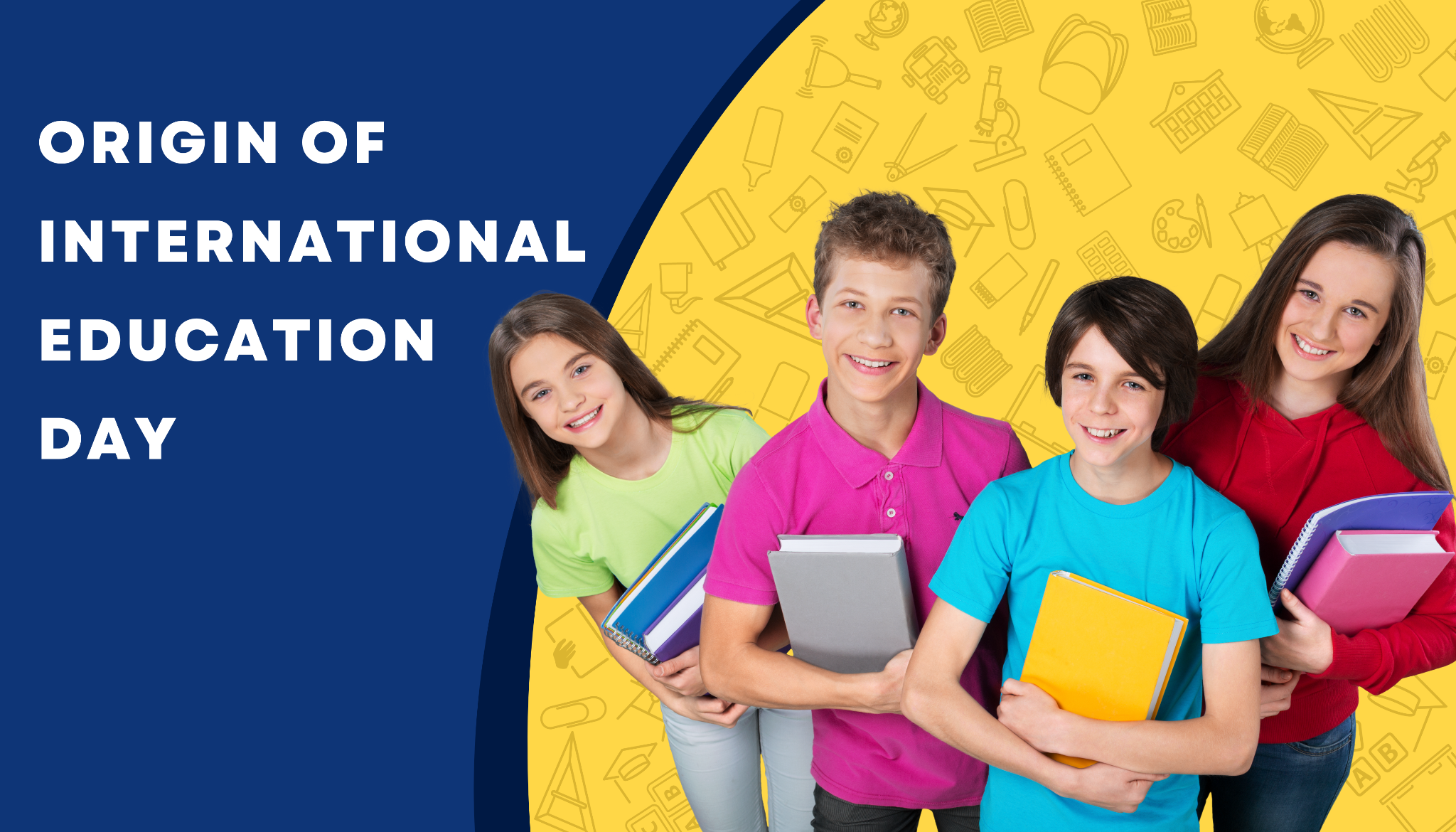
But why is Education Day celebrated on this specific date?
This observance’s roots date back to December 3, 2018, when the United Nations General Assembly designated January 24 as International Education Day, marking its inaugural commemoration in 2019.
The UN underscored the importance of this day, asserting that “education serves as a cornerstone in fostering resilient and sustainable societies, playing a pivotal role in advancing all other Sustainable Development Goals,” as mentioned earlier.
Furthermore, the international body emphasized the imperative of “implementing measures to ensure inclusive and equitable access to high-quality education across all levels — from early childhood to tertiary education and beyond. Encompassing technical and vocational training — enabling individuals to continually engage in lifelong learning, thereby equipping them with the knowledge and skills necessary to fully participate in society’s opportunities and contribute to sustainable development.”
Digital Education So That No One Is Left Behind
In 2016, the Telefónica Foundation and the “la Caixa” Foundation jointly launched ProFuturo, a digital education initiative to narrow the education gap by enhancing the learning conditions of millions of underprivileged children across various continents.
By 2023, this groundbreaking endeavor had already made significant strides, impacting over 28 million beneficiaries across more than 40 countries, including nearly 1.5 million educators.
Looking ahead to the future of education, ProFuturo highlights several critical issues that will shape the educational landscape in 2024.
Among them are technological advancements, such as the evolving role of artificial intelligence in education and the proliferation of digital content. Addressing these challenges while maximizing their potential without compromising educational quality remains a key focus.
However, the foremost priority remains transforming schools and educators through continuous training, aiming to actualize digital technologies’ transformative potential within the education sector.
What Is The History Of International Education Day?
International Education Day, observed annually on January 24th, serves as a platform to champion the transformative power of education for fostering peace and sustainable development. Despite its relatively short history, the day encapsulates a global commitment to ensuring universal access to education.
The genesis of this commemoration traces back to December 2018 when Nigeria, alongside 58 other member states, collaborated to propose a resolution to the United Nations General Assembly. This resolution, which designated January 24th as International Education Day, underscored the pivotal role of education in cultivating peaceful and resilient societies.
The United Nations emphasizes, “On 3 December 2018, the United Nations General Assembly unanimously adopted a resolution proclaiming 24 January as International Day of Education, recognizing the significance of education for peace and development.”
It further elaborates, “The adoption of resolution 73/25 ‘International Day of Education,’ co-sponsored by Nigeria and 58 other Member States, reaffirmed the steadfast political commitment to advancing transformative initiatives for inclusive, equitable, and high-quality education for all.”
The Significance And Components Of Digital Education
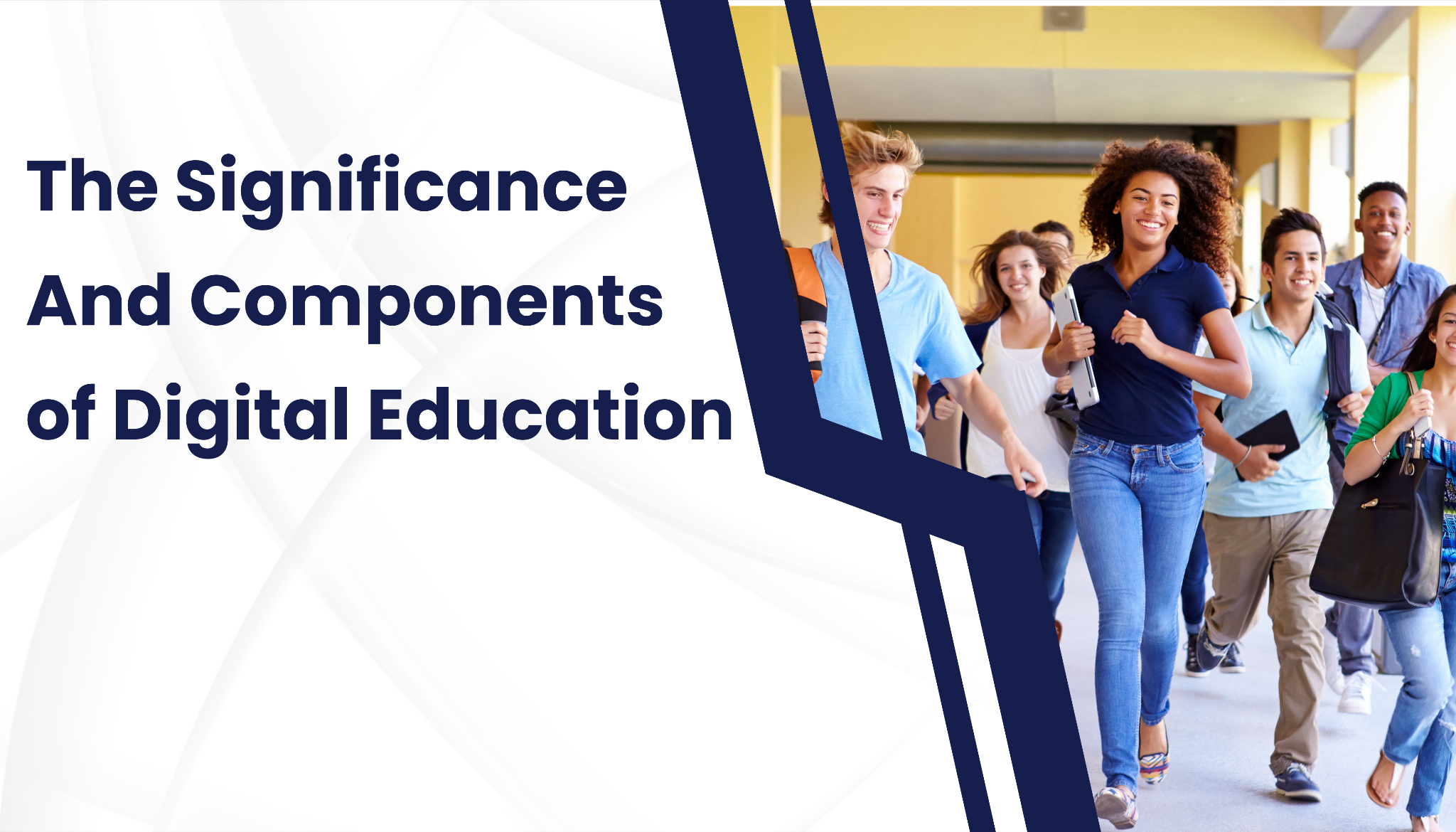
Digital education is the most profound disruption witnessed in the past two decades, offering a vital means to narrow the education gap.
Digital education emerges as a pivotal tool in enhancing, if not revolutionizing, future learning—an opportunity too significant to overlook, given the potential of the digital revolution to uplift the underprivileged.
Assessing the competencies demanded by the forthcoming generations necessitates a digital perspective, with technology occupying a central role. However, fostering inclusivity is imperative for our societies to progress towards substantial reductions in educational and, consequently, socioeconomic and cultural disparities.
What Is The Significance Of International Education Day?
International Education Day carries profound significance on various fronts:
Global Level
Promotion of Universal Education: It serves as a global beacon, reminding us of education’s pivotal role in achieving Sustainable Development Goal 4: Quality Education for All. This underscores nations’ commitment to prioritizing education and striving for universal access and equity.
Addressing Educational Challenges: The day serves as a forum to spotlight ongoing education challenges, such as access for marginalized groups, funding discrepancies, and the imperative for innovative teaching methodologies. This fosters global conversations and partnerships to tackle these issues head-on.
Advocacy for Increased Investment: International Education Day catalyzes advocacy efforts, urging governments and individuals to bolster investment in education. This ensures sufficient resources are allocated to establish and sustain high-quality education systems worldwide.
Individual Level
Empowerment of Individuals: Education bestows individuals with knowledge, skills, and critical thinking prowess, empowering them to enhance their lives, actively engage in society, and contribute to community development. This empowerment resonates deeply, fostering motivation and self-reliance.
Promotion of Tolerance and Understanding: Quality education cultivates critical thinking, broad-mindedness, and appreciation for diverse cultures and viewpoints. By commemorating International Education Day, we reaffirm education’s role in fostering tolerance and understanding, promoting a more harmonious and unified global community.
Inspiration for Action: The day serves as a rallying call for individuals to engage in educational initiatives, whether through volunteerism, supporting educational organizations, or advocating for better policies. This personal involvement translates into tangible advancements, driving meaningful progress in education worldwide.
Why Has UNESCO Decided To Counter Hate Speech?
There are several compelling reasons behind UNESCO’s decision to dedicate International Education Day on January 24th, 2024, to addressing the issue of countering hate speech:
Growing Prevalence of Hate Speech: Regrettably, hate speech has surged in both online and offline spheres, targeting individuals and groups based on factors such as race, religion, ethnicity, sexual orientation, and gender identity. This alarming rise in hate speech translates into real-world consequences, fueling violence, discrimination, and social marginalization.
Education as a Potent Tool: UNESCO staunchly asserts that education is one of the most potent weapons against hate speech. By instilling tolerance, respect, and critical thinking values in young minds, we can empower them to recognize and challenge hate speech, fostering acceptance and understanding within their communities.
Vulnerability of Students: Educational settings, including schools and institutions, are not immune to the spread of hate speech. Students can be targeted online and offline, creating an environment fraught with hostility and insecurity. Therefore, it is imperative to equip educators and school leaders with the necessary tools and support to address hate speech effectively within their educational environments.
Addressing Root Causes: Combating hate speech necessitates delving beyond mere content removal. UNESCO underscores the importance of tackling the root causes of hate speech, such as prejudice, discrimination, and lack of understanding. Education is pivotal in dismantling these negative ideologies, promoting empathy, and fostering inclusivity.
UNESCO’s Call to Action On World Education Day 2024
UNESCO emphasizes that UNESCO is dedicating the International Day of Education, observed on January 24, 2024, to highlight the crucial role of education and educators in addressing hate speech. This phenomenon has escalated in recent years with the proliferation of social media, eroding the fabric of our societies.
It further emphasizes That The world is experiencing an uptick in violent conflicts, accompanied by a troubling increase in discrimination, racism, xenophobia, and hate speech.
The impact of this violence transcends geographical, gender, racial, religious, and political boundaries, both offline and online.
An unwavering commitment to peace is more urgent today than ever: Education stands at the forefront of this endeavor, as underscored by the UNESCO Recommendation on Education for Peace, Human Rights, and Sustainable Development.
Learning For Lasting Peace
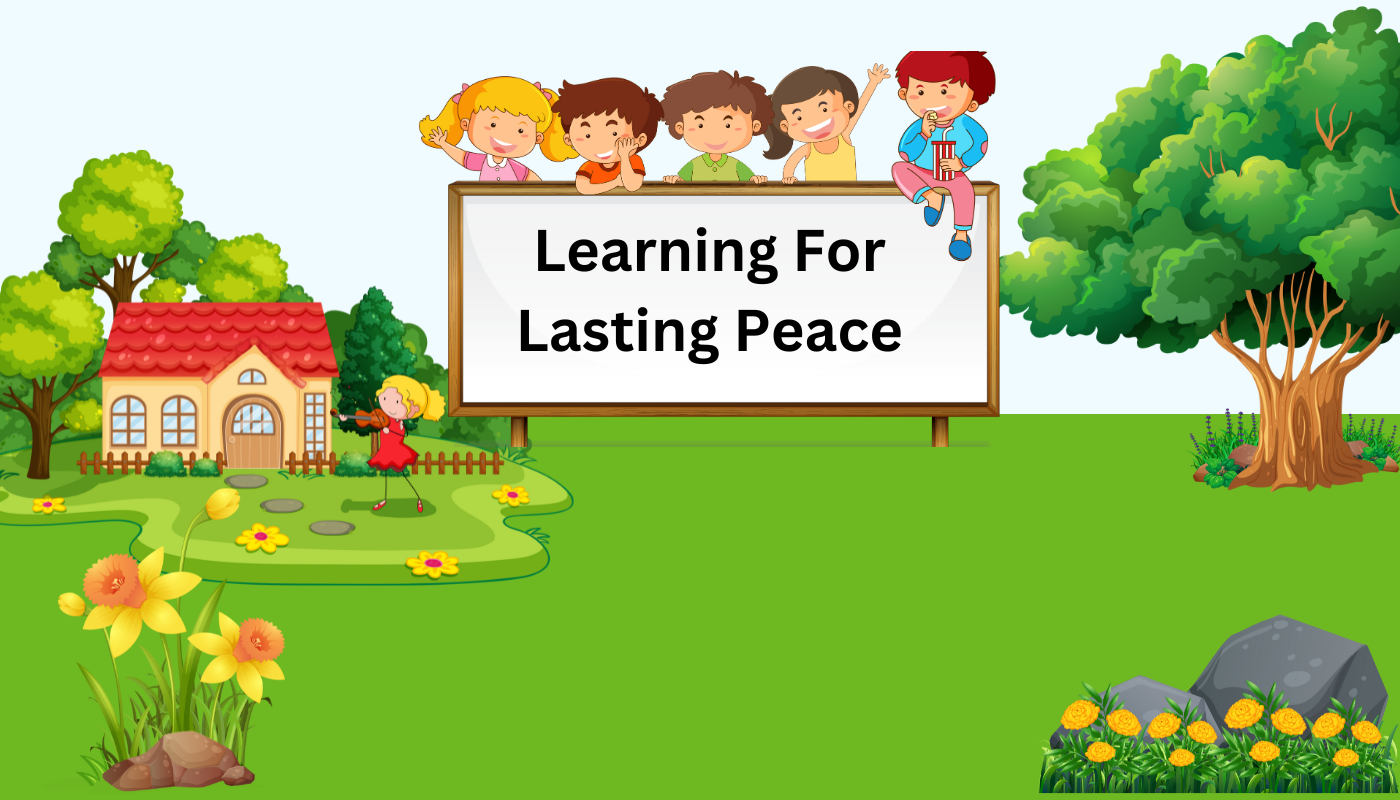
Education plays a pivotal role in nurturing peace, offering a transformative journey for learners. It equips them with vital knowledge, values, attitudes, skills, and behaviors, empowering them to ignite positive change in their communities.
The bedrock of peaceful, just, and sustainable societies is built through education, influencing every aspect of our lives.
Amid mounting global challenges like climate change, democratic erosion, inequality, discrimination, hate speech, violence, and conflict, education emerges as a potent tool to address and prevent these issues.
Today, amid urgent calls for peace, education takes center stage. It’s a crucial investment with far-reaching benefits, promising a brighter future for generations to come.
Background
Education is a fundamental right and a shared responsibility. Acknowledging its significance, the United Nations designated January 24 as the International Day of Education, commemorating its pivotal role in promoting peace and development.
Education Is A Human Right
The Universal Declaration of Human Rights guarantees the right to education in Article 26, advocating for free and mandatory elementary education.
The Convention on the Rights of the Child, established in 1989, also emphasizes the importance of making higher education accessible to everyone.
Education Is Key To Sustainable Development
In September 2015, the global community acknowledged the vital role of education in achieving all 17 goals outlined in the 2030 Agenda for Sustainable Development.
Goal 4 targets inclusive, high-quality education and lifelong learning opportunities for everyone by 2030.
Challenges To Achieving Universal Education
Educational access is crucial for children’s futures, yet millions globally face barriers. Approximately 244 million children are not in school, and 617 million need more essential reading and math skills.
Moreover, many girls in sub-Saharan Africa struggle to complete secondary education, and millions of child refugees remain out of school. This deprivation of education rights is unacceptable, hindering efforts to achieve gender equality and alleviate poverty.
Transforming Education, Building Our Future
The Transforming Education Summit was called together to address a pressing global issue in education: the challenges of equity, inclusion, quality, and relevance.
These issues, though often overlooked, are profoundly affecting the prospects of children and youth worldwide.
The Summit served as a valuable platform to prioritize education on the global political stage, rallying support, ambition, and practical solutions to overcome learning setbacks caused by the pandemic and reshape education for an evolving world.
The Futures Of Education
The education landscape is evolving due to social, environmental, and technological shifts, requiring flexibility and innovation.
Despite the hurdles, education holds remarkable potential to shape fair and sustainable futures.
UNESCO is at the forefront, fostering dialogue, igniting ideas, and driving research and initiatives to rejuvenate education.
This endeavor aims to forge a fresh educational pact grounded in values of human rights, fairness, dignity, and cultural richness. It firmly asserts education as a communal responsibility and a collective treasure.
Why Do We Mark International Days?
International days and weeks serve as opportunities to raise awareness about pressing issues, rally support from policymakers, and acknowledge humanity’s triumphs.
These observances were part of our global calendar long before the formation of the United Nations. However, the UN has embraced them as a practical means of advocacy. We also recognize various other UN commemorations throughout the year.
Conclusion Of World Education Day 24 January
Let’s celebrate World Education Day on January 24th. It’s a chance to reaffirm our commitment to accessible, quality education for all. Investing in education unlocks opportunities for individuals. It also paves the way for a more prosperous, sustainable future.
FAQs Of World Education Day 24 January
What Is The Significance Of World Education Day?
World Education Day on January 24 underscores the significance of education as a basic human right. It also emphasizes its role as a crucial catalyst for both social and economic progress.
How Can Individuals Contribute To Promoting Education On World Education Day?
People can promote education’s importance, backing initiatives for wider access, and lobbying for inclusive educational policies. This involves raising awareness, supporting expansion efforts, and advocating for prioritized education policies.
How Does Technology Influence The Future Of Education?
Technology has the potential to revolutionize education by making learning more accessible, personalized, and interactive. It enables innovative teaching methods, facilitates remote learning, and expands access to educational resources.
How Does Education Contribute To Sustainable Development?
Education equips individuals with the knowledge and skills to address pressing global challenges like poverty, inequality, and climate change. Education empowers individuals to become active agents of change in their communities by promoting critical thinking, problem-solving, and civic engagement.
What Are Some Key Initiatives Aimed At Promoting Education Globally?
Global efforts like Education for All and the Global Partnership aim to broaden education access. They focus on marginalized communities. These initiatives prioritize enhancing educational opportunities for those often underserved.
How Can Policymakers Support Efforts To Enhance Education Worldwide?
Policymakers can allocate educational resources, enact legislation promoting inclusive and equitable learning opportunities, and prioritize education in national development agendas.

